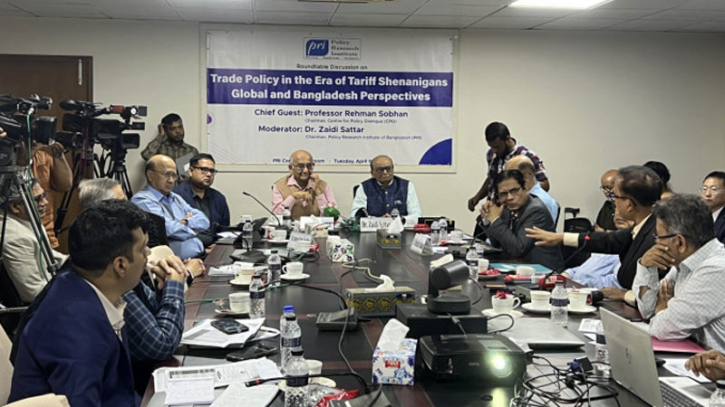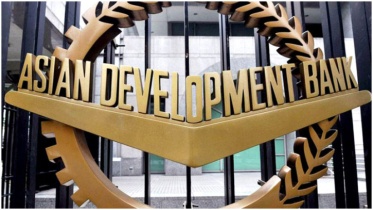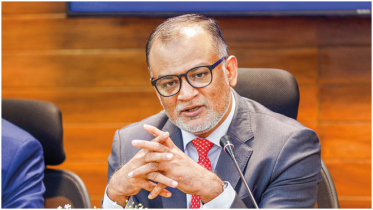Bangladesh needs swift strategic response to US tariff shake-up

Economists have called on Bangladesh to respond with strategic diplomacy and policy reforms to protect its trade interests, especially in the readymade garment (RMG) sector, as the United States moves to implement sweeping new tariffs on imports.
Speaking at a roundtable in Dhaka on Tuesday (8 April), experts said the country must swiftly and smartly engage with the US to safeguard its exports and present itself as a credible and rational partner in the evolving global trade landscape.
The discussion, titled "Trade Policy in the Era of Tariff Shenanigans: Global and Bangladesh Perspectives", was organised by the Policy Research Institute (PRI) of Bangladesh.
The US policy, announced on 2 April, includes a blanket 10% tariff on all imports, along with additional country-specific duties targeting nations it considers to have high trade barriers against American goods.
Described as a move to support domestic manufacturing and address trade imbalances, the policy represents a clear shift from decades of multilateral trade practices.
PRI Chairman Dr Zaidi Sattar warned of the potential consequences for developing economies like Bangladesh.
"This is a sledgehammer unleashed on a glass house. The new US tariff regime marks a frontal attack on the rules-based global trade order and will reshape the landscape of international commerce if it prevails," he said.
Sattar stressed that key competitors such as Vietnam, India, and Cambodia have already begun engaging US authorities to protect their trade positions.
"We cannot afford to lag behind," he said, urging a calm but proactive response from policymakers.
Instead of considering retaliatory tariffs, which could be both legally and economically harmful, the economists recommended reforms to Bangladesh's import regime.
Suggestions included reducing duties on US machinery, agricultural products, and semiconductors — areas that have low fiscal impact but high diplomatic value.
"We must signal that Bangladesh is a rational, forward-looking trade partner," said Sattar, calling on the government to seize this opportunity for strategic engagement.
He also stressed the need to diversify exports and reduce anti-export bias by supporting underdeveloped sectors.
In his presentation, Sattar proposed revising tariffs on US goods such as automobiles and alcoholic beverages, and strengthening regulations to address non-tariff barriers, including better enforcement of intellectual property rights and anti-corruption measures.
Speaking as chief guest, Professor Rehman Sobhan said, "The US is reverting to the 19th-century period of import substitution, creating a rule-bound globalisation with the weaponisation of economic instruments."
He warned that the new approach could undermine the foundations of global trade.
Selim Raihan, executive director of the South Asian Network on Economic Modelling, added, "The US has not only targeted tariffs. Development aid has also been downsized. This has come as a package," noting that the combined effect could shift international trade priorities.
Dr Mohammad Abdur Razzaque, chairman of Research and Policy Integration for Development, cautioned against accepting unfair bilateral agreements.
"Unfair and unequal negotiations can lead to welfare loss instead of utilising trade as a measure of growth," he said.
Despite the uncertainty, some economists noted that the US may still be open to flexible arrangements, offering Bangladesh a window to influence outcomes through composed and strategic diplomacy.
.png)




